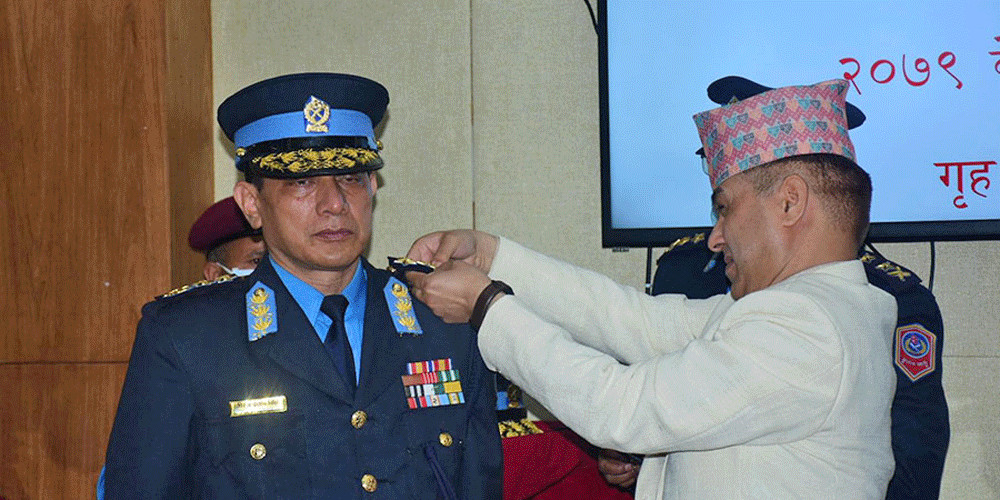
Dhiraj Pratap Singh has been appointed as the Inspector General of Nepal Police. The cabinet meeting has decided to make Singh the police chief. After the current IGP Shailesh Thapa went on compulsory leave, Singh got the leadership. The government has also decided to promote Raju Aryal as the Inspector General of the Armed Police.
Dhiraj Pratap Singh has been appointed as the 29th IGP of Nepal Police. A cabinet meeting held on Sunday decided to make Singh the police chief. Earlier, the government had made Singh and Rabindra Dhanuk AIGs by adding Nepal Police posts. Singh and Dhanuk were promoted to AIG in 2078 Chaitra17. Among the AIG posts promoted by the government, Singh has been given the responsibility of the Chief of Police. There was a competition between Nepal AIG Bishwaraj Pokharel, Sahakul Bahadur Thapa, and Rabindra Bahadur Dhanuk to become IGP.
But the government has decided to give Singh the leadership of the police. Born in Vikrama Sambat 2024 in Bijaura, Dailekh, Singh has a bachelor's degree in law and a master's degree in humanities. Singh, who entered the service as a police inspector in the year 2049 BS, is known as a fearless and capable officer in the Nepal Police. Singh, who has been leading the police for a year, had earlier led Madhesh Pradesh and CIV when he was the DIG. During his tenure as SSP, he also led the Metropolitan Crime Branch.
Ajay Tamang and Gopal Tamang, who was involved in the murder after the abduction of 11-year-old Nishan Khadka on 2075 Shrawan 21, were killed in a police encounter. At that time, Singh was the head of the division. When he was the Superintendent of Police, Singh commanded the Dang district.
As DIG, Singh has assumed command of the Madhesh Pradesh Office and the Central Bureau of Investigation. Singh, who played an important role in crime control in Kathmandu while in the crime branch, now has the responsibility to provide not only local-level elections but also electoral security at those levels.





